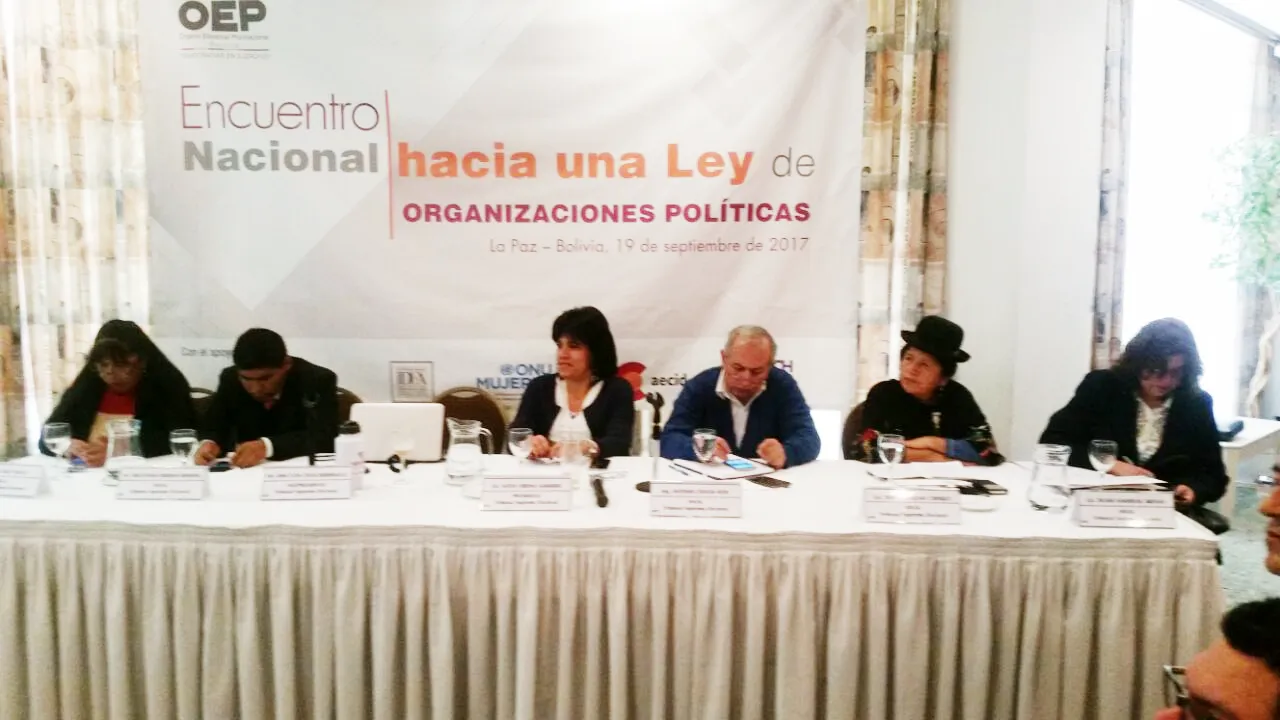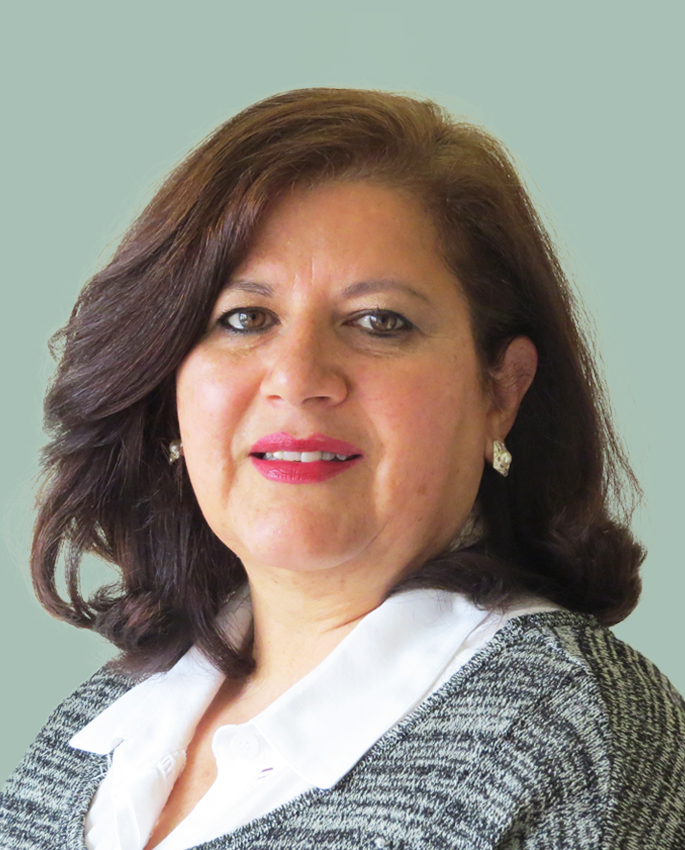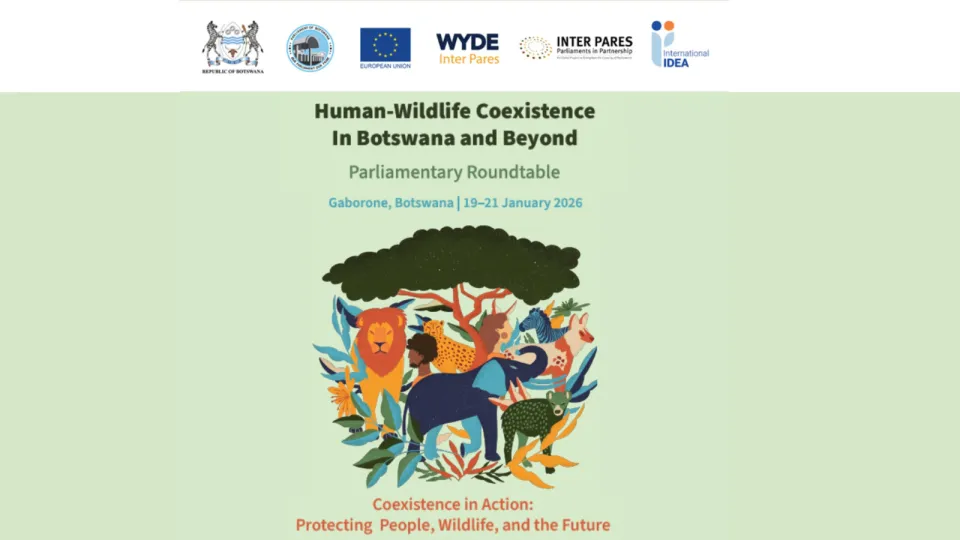Citizen consultation process in Bolivia to shape new Law of Political Organizations

The National Workshop convoked by the Supreme Electoral Tribunal took place on 19 September 2017 in La Paz city, for the socialization of the results of the departmental days of deliberation around the contents of the Law of Political Organizations, which is located under construction, with the support of International IDEA with UN Women, the Spanish Agency for International Development Cooperation (AECID), the Friedrich Ebert Stiftung Foundation and the Swedish Embassy.
Este artículo se encuentra disponible en Castellano.
In this manner, the process of deliberation and collection of proposals, carried out over four months, was completed in all nine departments of the country, with the participation of political organizations, women's organizations, indigenous peoples and their representatives, peasants, youth organizations, the media and other civil society actors.
The President of the Supreme Electoral Tribunal, Katia Uriona, established that the law will be the product of this broad process of citizen consultation, in such a way that the new norm expresses the expectations of the different sectors of opinion that expect and demand a profound reform of the system of political representation, in accordance with the needs and challenges of the current context, as well as with the new institutional framework in force in the country, which allows progress in the deepening of Intercultural and Joint Democracy.
Uriona explained that the process of discussion of the Law of Political Organizations was developed on the basis of four axes:
1. The first refers to the constitution of political organizations, their registration and requirements, the number of militants, updating the register of militants, the extinction and cancellation of legal status, how to ensure the participation of women, and mergers and possible alliances.
2. The second refers to internal democracy, which determines the basic norms that political organizations must adopt in order to form their command and decision-making bodies, as well as mechanisms that guarantee compliance with the mandates established by law to guarantee the participation of women under the principles of equivalence, parity and alternation, equality of conditions and complementarity between women and men.
3. The third contemplates the participation of indigenous Peoples' Nations and Indigenous Peoples in the political system and its forms and mechanisms of participation in electoral processes, as established in the Political Constitution of the State and international declarations and conventions on indigenous peoples.
4. Finally, the axis related to the financing and control of the political organizations, their patrimony and the use of the resources, as well as the financing of the electoral campaigns. Uriona explained that a fairly broad consensus was generated on the adoption of the mixed financing system (public and private), through which it is possible to allocate public resources for electoral periods (media advertising spaces), as well as for the programmatic ideological strengthening of militancy in non-electoral periods. He also pointed out that in the case of private financing specific restrictions will be established to avoid illicit resources.
In addition to a very plural and representative presence of political and social organizations, it was possible to notice a great interest of the participants in the contents of the new Law, which can become an important factor of incidence in the moment the project will be dealt with by the Plurinational Legislative Assembly.




